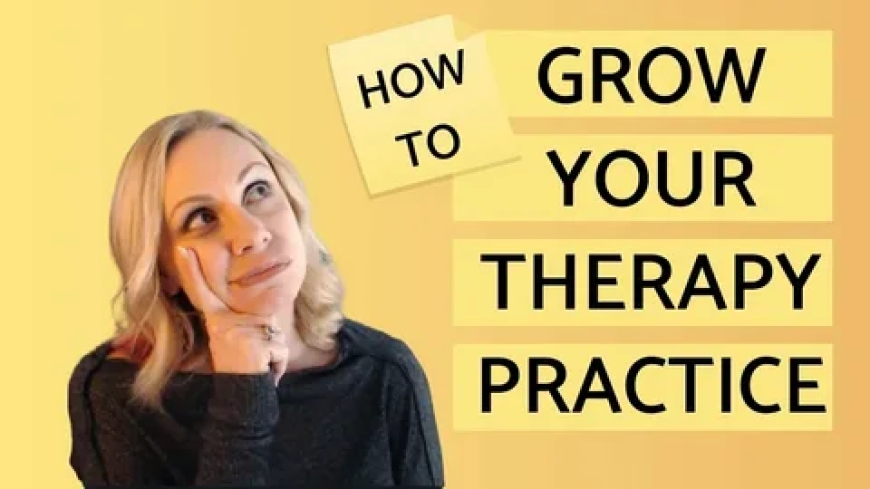Improve Your Practice with Effective Website Design for Therapists
Learn how to create an impactful website for therapy. Discover tips on choosing templates, custom designs, and SEO for therapists. Boost your online presence.

Creating a professional and engaging online presence is essential for therapists in today's digital world. A well-designed website can attract potential clients, provide valuable information, and establish your credibility. This blog will guide you through the key elements of therapist website design, including tips on choosing templates for therapist websites, the benefits of a personalized therapist website, and more.
The Importance of Professional Therapy Website Design
In the competitive field of therapy, having a professional website design for therapists is crucial for several reasons:
-
First impressions Matter: Your website is often the first point of contact between you and potential clients. A well-designed website can create a positive first impression and build trust.
-
Accessibility: A user-friendly website ensures visitors can easily find the information they need, such as your services, contact details, and appointment scheduling.
-
Credibility: A polished and professional website reflects your commitment to your practice and your clients, enhancing your credibility and reputation.
Choosing the Right Therapist Website Templates
Therapist website templates offer a convenient and cost-effective way to create a professional website. Here are some key features to look for in a template:
-
Responsive Design: Ensure the template is mobile-friendly, as many clients will access your website from their smartphones or tablets.
-
Customization Options: Look for templates that allow you to customize colors, fonts, and layouts to match your branding.
-
Integrated Features: Choose templates that include essential features like appointment scheduling, contact forms, and blog sections.
-
SEO-Friendly: An SEO-optimized template can help improve your website's visibility in search engine results, attracting more potential clients.
Benefits of Custom Website Design for Therapists
While templates can be a great starting point, a custom website design offers several advantages:
-
Unique Branding: A custom design ensures your website stands out and reflects your unique practice and personality.
-
Tailored Functionality: Custom websites can be built with specific features tailored to your needs, such as client portals, online payment systems, and interactive tools.
-
Scalability: As your practice grows, a custom website can be easily updated and expanded to accommodate new services and features.
-
Enhanced User Experience: A custom design allows for a more intuitive and user-friendly experience, keeping visitors engaged and encouraging them to take action.
Key Elements of an Effective Therapy Website Design
To create an effective therapy website, consider incorporating the following elements:
-
Clear Navigation: Provide a straightforward and user-friendly navigation menu to make it easier for visitors to get what they're looking for.
-
Compelling Content: Provide valuable information about your services, qualifications, and approach to therapy. Use clear, concise language and avoid jargon.
-
Professional Imagery: Use high-quality images that convey warmth and professionalism. Photos of your office, team, or calming nature scenes can help create a welcoming atmosphere.
-
Client Testimonials: Highlight positive feedback from clients to build trust and credibility. Include testimonials on your homepage or a dedicated testimonials page.
-
Call-to-Action (CTA): Encourage visitors to take the next step with clear and compelling CTAs, such as “Schedule a Consultation” or “Contact Us Today.”
-
Blog Section: Regularly update your blog with informative articles on mental health topics, therapy techniques, and self-care tips. This can boost the SEO of your website and help you become recognized as an expert in your field.
Optimizing Your Therapy Website for SEO
Search engine optimization (SEO) is essential for ensuring your website ranks well in search results. Here are some tips to optimize your therapy website:
-
Keyword Research: Identify relevant keywords that potential clients might use to find your services, such as “therapy website design” and “therapist website templates.”
-
On-page SEO: Use your primary and secondary keywords naturally throughout your website, including in headings, meta descriptions, and image alt text.
-
High-quality content: Provide educational, in-depth articles that speak to the concerns and queries of your intended readership.
-
Backlinks: Build backlinks from reputable websites in the mental health and wellness industry to improve your site’s authority.
-
Local SEO: If you have a physical practice, optimize your website for local search by including your location in your keywords and setting up a Google My Business profile.
The Role of Social Media in Promoting Your Therapy Website
Social media platforms can be powerful tools for driving traffic to your website and engaging with potential clients. Here are some tips for leveraging social media effectively:
-
Share valuable content: Post links to your blog articles, share mental health tips, and promote your services on platforms like Facebook, Instagram, and LinkedIn. Incorporate optimized keywords like "website design for therapists" to attract your target audience.
-
Engage with Your Audience: Respond to comments and messages promptly, and encourage discussions around mental health topics. Engaging with your audience helps build a connection and can drive traffic to your site.
-
Visual Content: Use eye-catching visuals, such as infographics and videos, to capture attention and convey information effectively. Highlighting elements like "therapy website design" in your visual content can make your posts more relevant to your audience.
-
Consistency: To keep your audience interested and informed, stick to a regular posting schedule. Consistent updates about topics such as "therapist website design" can position you as an authority in your field and drive more visitors to your website.
Conclusion
Creating an effective therapist's website involves careful planning and consideration of various elements, from choosing the right templates to optimizing for SEO. By investing in a professional and user-friendly website, you can enhance your online presence, attract more clients, and establish your credibility in the field.
Contact Good Man Creatives today to get started on transforming your practice with a professional website design for therapists!
What's Your Reaction?
























![Smart Hemp Gummies AU/NZ [Upto 60% Off] – Buy Now](https://news.bangboxonline.com/uploads/images/202412/image_430x256_6764512b2dca4.jpg)